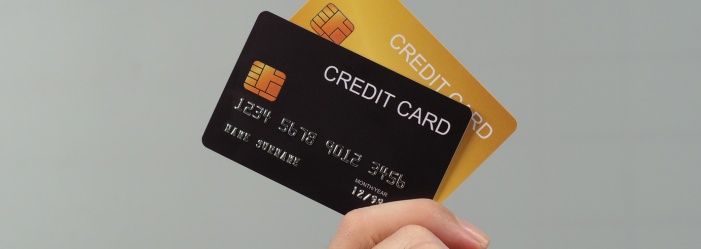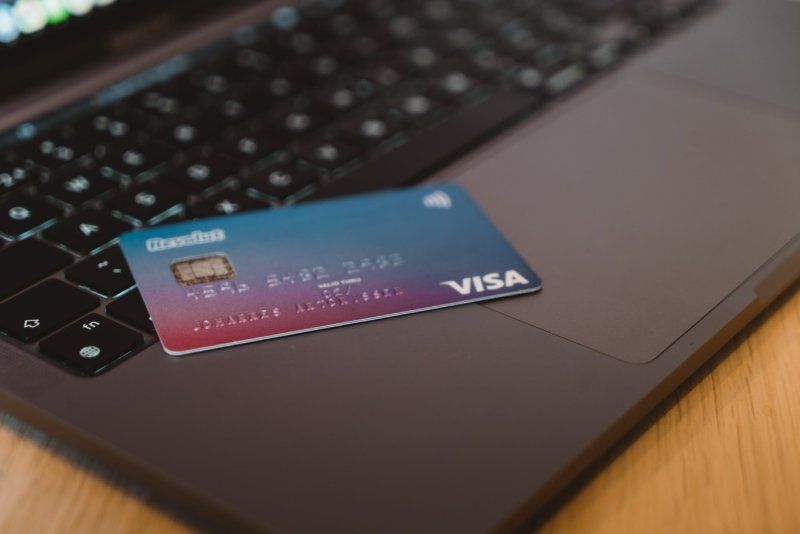Last Updated: March 14, 2024
Mistakes to Avoid When Using Credit Card

Disclaimer: We are not qualified legal or tax professionals and are not giving advice. Always speak with a qualified professional before making any legal or financial decisions.
Credit cards offer convenience and rewards, but they can also lead to costly mistakes if not used wisely. From accruing high-interest debt to damaging your credit score, the repercussions of these errors can hinder your financial health.
In this article, we'll explore six major credit card mistakes and provide practical advice on how to avoid them, ensuring you make the most of your credit cards without falling into common traps.
Don't want to read through? Speak to a debt specialist right now.
Not Reading the Terms and Conditions:
Each credit card issuer is different, so it's important to read the terms and conditions of each credit card before applying to make sure you're going to be happy with them.
Some cards have an annual fee that isn't waived for your first year or a balance transfer fee, plus other less common fees like cash advance charges. Slacking on paying off your bill:
It may seem harmless to let some of your purchases ride at 0% interest while you pay down others, but if you don't keep up then these small balances can snowball into something much more serious!
There are also penalties for not paying off your entire debt by the end of the due date specified in the account agreement--often referred to as a high APR.
Not Paying Off Your Balance in Full Every Month
Another major credit card mistake people often make is to carry a balance from month to month without paying it off. This can lead to high-interest charges and late fees, which will only make your debt more difficult to handle.
Some people think that if they only make required monthly payment on their account, then they don't need to worry about anything else. But this isn't true at all!
If you stop paying for an entire year or two years, lenders may send your outstanding balances due immediately in full (plus any related penalties).
Even worse, some companies will cancel out your grace period completely so that even one missed payment means you'll be hit with these costly penalties right away with absolutely no exceptions!
Running Up Your Credit Card Limit
Running up your credit card to its max limit just because you have it available is a big mistake too. This is because your credit limit is the amount of money you have to spend before you start getting charged interest on what's leftover, which adds up really fast if you don't stay within it!
When buying anything that isn't an emergency purchase with your credit card, ask yourself: “Can I afford this?” If not and there are no other payment options available for whatever reason then please STOP immediately!
This could be very expensive in the long run so avoid it at all costs. The sooner people stop making these mistakes and change their financial habits, the better off they'll be later down the line.
Using Your Credit Card for Everyday Purchases
You should not be using your credit cards for everyday purchases. It is usually better to carry cash with a limit of what you want to spend for the day. If not, then only use your credit card at the beginning of the month and pay off any balance before it's due!
Doing this will save you from accumulating interest charges on purchases that are frivolous because they don't need to be in an emergency situation.
You should also have a monthly budget so that you're able to stay within your spending limits each year. This way no one has access or can take money out without permission which could lead up to more debt if too much is taken out all at once especially during emergencies where there might not be enough funds available!
Only Making Minimum Payments
Making the minimum payment is the same as debt, which means you are no better off than if you did not pay anything on your credit card, and instead just let it roll over from month to month.
This will cost you much more in interest due to paying a high-interest rate for a longer period of time. It will also diminish your credit score, making it harder for you to get loans in the future.
Debt and having good credit go hand in hand, so make sufficient payments on your debts to ensure that both do not impede each other's success.
Read The True Cost of Minimum Credit Card Payments
What If my payment is late of if I miss a payment?
Depending on how far past the due date you make your credit card payment, it can be bad for your credit score. And if you miss your credit card payment entirely, it will be reported to the major credit bureaus. This will most certainly lead to a certain drop in your credit score.
If you have a good payment history, then late payments that are more than 30 days old may not affect your credit score as much. However, if you're really close to maxing out your credit card and using most of your available credit limit or have defaulted before with another account in the past, late payments might hurt a little more.
If this is the case, try paying ahead as much as possible so that you don't accumulate interest fees and allow yourself some room in order to avoid accidentally paying late again.
Signing Up Just Because of the Credit Card Rewards
If the rewards are beneficial to you and the interest rate is not outrageous then it might be worth it to sign up for a credit card just because of its reward program. The main idea is to get a card with a relatively low-interest rate, conditions under which fees can be waived or reduced, and several months of no finance charges after meeting certain conditions.
Rewards programs are often what encourage people to sign up for cards when they otherwise would not be eligible for a credit card because they don't have sufficient credit history.
Should I Consider Debt Consolidation?
If you are struggling with high interest credit card debt across multiple cards, debt consolidation may be an option to reduce interest rates and simplify payments. Debt consolidation involves taking out a new loan to pay off existing credit card balances.
This can allow you to make just one monthly payment at a lower interest rate. While this can make payments more manageable, it's important to shop around for the best loan rates and terms. Be sure to factor in any fees and penalties for early repayment.
Debt consolidation loans don't make sense for everyone. Consider your own financial situation carefully before choosing this option. And be sure you have a plan to pay off the consolidation loan as fast as possible.
Chasing Credit Card Rewards
Credit card rewards programs can provide good value if you pay off balances in full each month. However, if you carry a balance, interest charges usually outweigh any rewards earned. Carefully evaluate any rewards cards before signing up - make sure you understand interest rates, fees, and your own spending habits.
Should I Transfer My Balance?
Balance transfers to a 0% APR credit card can be a smart way to save on interest, but it's critical to pay off the balance in full before the introductory period ends (often 12-18 months). Be sure to factor in balance transfer fees as well, typically 3% of the amount transferred.
Use balance transfers strategically in combination with an aggressive debt payoff plan. And avoid the temptation to overspend just because you have temporarily lowered interest payments.
FAQs
Conclusion
If you're trying to avoid having credit card debt, it's always best to use your credit card responsibly so that you don't accumulate interest fees and have enough room to avoid paying late again.
Using credit cards wisely can be very powerful, but it’s important to understand the best way to use them. If you are not careful with your spending habits and make too many mistakes with your card, this could have a negative effect on your score.
If you are struggling with overwhelming debt and want to explore your debt relief options, Pacific Debt Relief offers a free consultation to assess your financial situation. Our debt specialists can provide objective guidance relevant information and support to help find the right debt relief solution.
*Disclaimer: Pacific Debt Relief explicitly states that it is not a credit repair organization, and its program does not aim to improve individuals' credit scores. The information provided here is intended solely for educational purposes, aiding consumers in making informed decisions regarding credit and debt matters. The content herein does not constitute legal or financial advice. Pacific Debt Relief strongly advises individuals to seek the counsel of qualified professionals before undertaking any legal or financial actions.
✔ Accredited by Better Business Bureau with BBB A+ rating (4.93 rating and 1678 reviews)
✔ US News and World Reports and Bankrate ranked Pacific Debt Relief as one of “The Best Debt Relief Companies of 2024”
✔ 6.9 star rating by BestCompany.com (over 2379 client reviews)
✔ 4.8 star rating by TrustPilot based (over 1613 verified consumer reviews)
✔ ConsumerAffairs.com Accredited (over 544 verified reviews with an average rating of 5 stars)
✔ A Top 10 Rated Compan by TopTenReviews.com , ConsumersAdvocate.com and Top10debtconsolidation.com
✔ 4.6 star rating by Google (229 client reviews)
✔ 100% rating by SuperMoney (9 client reviews)
Reduce Your Credit Card Debt By Up to Half

BBB Reviews | 4.9/5.0 Rating









 Do Not Sell My Personal Information
Do Not Sell My Personal Information